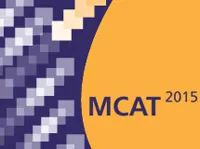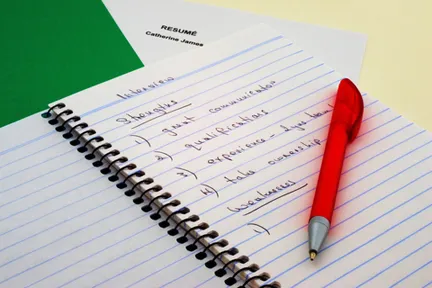Name: Becky Roof, PhD
Job Title & Organization: Program Specialist, NINDS
Postdoc Advisor, IC: Dr. David Sibley, NINDS (from 2008-2012)
How long you’ve been in your current job: I’ve been in my current position a little over two years; however, I also spent six months here on a detail. I was in the same office but working for a different program.
How did you find this detail?
I did a google search for offices that were doing cool things and I contacted people. A lot of people ignored me but one person responded and then I interviewed for a detail. I had been frustrated at the time because I had been trying to get a job through USAJobs and I felt like I had useful transferable skills but I couldn’t say that I had actually done the stuff that I wanted to do.
How did your detail turn into a full-time/permanent position?
I ended up doing a full-time detail in the office for six months and then when a position opened up in the office, I was able to say that I had done that work, so I was able to get through the USAJobs process when I applied.
What do you do as a Program Specialist?
I work in the Office of Translational Research in NINDS. I work in two programs that give grants to researchers looking to translate their basic science findings into something that will benefit patients with neurological disorders. One program that I work with is called IGNITE, which is very new. It stands for Innovative Grants to Nurture Initial Translational Efforts. It is an early stage program to help people get ready for later-stage translational programs which we already have up and running in our office. And the second program is the Small Business Innovation Research, or SBIR program. This is a congressionally mandated program that spans eleven federal agencies.
The role of program in this is writing the funding opportunities, advising the applicants, and making funding recommendations to council based primarily on review comments. I help with moving grants through that process. I also help with things like workshops, websites, twitter, managing the budget, and doing analyses.
What are the most important skills that you utilize in your current position?
I’m going to break this up into two different categories because I remember being a postdoc and trying to think about what skills I had that were transferable and what skills I needed to develop.
One thing I do a lot of which I didn’t do much of in the lab is working as a team. Everything I do is very dependent on other people and they depend on me a lot more than when I was in the lab. Everything is done as a committee and everything is decided as a group. There are a lot of interpersonal skills and teamwork that I do now that I didn’t do much of in the lab.
Another thing that I do a lot of now, which I didn’t do much of before is juggling a lot of different tasks. Before, in an interview, I would say, “Sure, I can multitask because I can run two different experiments at a time.” Now, I have way more balls in the air than I did before and that was something that I had to learn.
Some of the things that I do now which are very transferable from what I did in the lab include: analysis, critical thinking, and being able to work in a very detail-oriented but also big picture way. Right now, I manage budgets and I move grants through the process and that is all very detail-oriented and you really can’t let anything fall through the cracks. However, I also do a lot of big picture thinking. For example I helped with the planning of a whole new program. Another example is thinking about how to best do outreach or to help grantees continue to succeed after their grant is done. There are a lot of big issues, which is really fun. It is also something that I did in the lab. I had to plan these individual experiments while thinking about how this fits into the big picture.
What is your favorite aspect of your current job?
It’s very challenging, but there are some really cool things. It is really cool to see a very broad view of science. In the lab, I was very focused on one receptor but now there are hundreds of diseases within the mission of NINDS and I see grants looking at a range from drug development to diagnostics to devices — all kinds of things. It is a really diverse portfolio and it is really cool to see a very broad view of neuroscience. It’s also really cool that I feel like we can shape the landscape of science. When we put out a new funding opportunity announcement, it can encourage scientists to go in a new direction. In that way, we can shape the field in a much broader way than when I was in the lab. I also really like supporting science; if somebody that we supported succeeds, I can feel proud that, in some small way, I helped make that happen. I will never be in the spotlight for the discovery but I had some role to play in bringing that to patients and that is exciting to me.
What has been the hardest aspect about transitioning into this career? What are some of the challenges you face?
Oh, it is an extremely different environment. It was a hard transition. It’s drinking from the fire hose here. The whole grant process is very complicated and there are a lot of details that you can’t drop. It’s just a very different world. Learning how government works was different as well; for example, trying to set up a workshop can require HHS approval, which can take twelve months. Learning the limitations of what can and can’t be done and then looking for creative ways to work within the system is challenging. There are just many things that you have to learn. Plus, you are working with so many other people and you aren’t just doing your own thing.
Being on detail was also a struggle for me in that it is a temporary assignment – you only have a three month MOU and my job back in the lab was gone. That was a struggle because I didn’t have a lot of stability at that time.
How did you come to choose this as your next step, including the process of deciding to pursue a detail?
Well, it was kick started when my mentor was running out of money for me, which I think happens to a lot of postdocs. I followed the advice of your office and even though I am an introvert by nature, I contacted a lot of people and did a lot of informational interviews to learn about a lot of different kinds of jobs. I talked to people in government but I also talked to people in nonprofits. At NIH, I talked to people in review and in program. After hearing about a lot of different things, I decided that program work sounded really exciting. Once I made that decision, then I started the process of applying to jobs and like I mentioned that didn’t work out and I eventually started looking for the detail.
Any last bits of advice?
I was pretty shy about talking to people I didn’t know, like a friend of a friend or a complete stranger for an informational interview. I really hesitated to do it, but your office suggested that I do it and so I did. And, it really made all the difference. That is really how I found out what I wanted to do and it is how I got the detail. My best advice is to not be shy about doing that.



